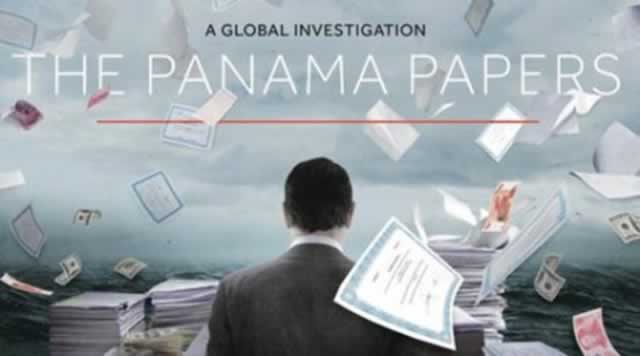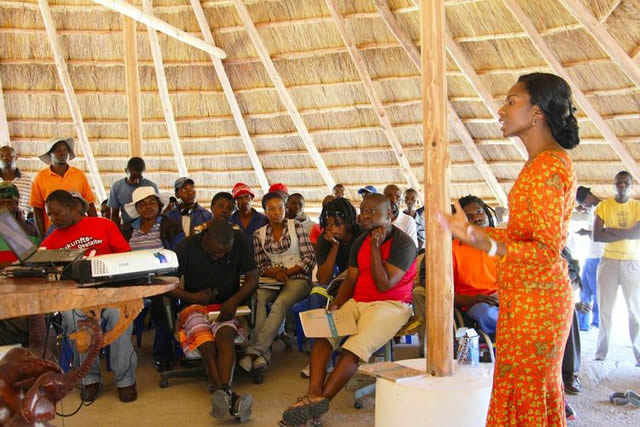Blowing the whistle on Africa’s dirty money


African Union-ECA high-level panel on illicit financial flows, estimates Africa’s losses at between $50 billion-$60 billion to offshore banks annually
Carlos Lopes Correspondent
While the media seems riveted by the naming of public officials and famous names, we Africans, however, remain concerned that the underlying global institutional and regulatory loopholes that facilitate tax evasion and IFFs are yet to receive the attention they deserve.
A few days before the “Panama Leaks” were released, the United Nations Economic Commission for Africa (UNECA) launched the African Governance Report IV. Entitled “Measuring Corruption in Africa — the International Dimension Matters”, the core messages of the Report strongly reverberate with the Panama Leaks.
The Leaks confirm two major facts: first, the existence and wide practices of offshore banking for the purpose of tax avoidance and other illegal activities. Second, the sheer magnitude of these secret financial transactions: almost 215 000 offshore shell companies, more than 14 000 clients, more than 11,5 million documents with billions of US dollars hidden behind them.
Our Report contains a number of core messages. First, there is the need to rethink current perception-based measures of corruption in Africa; one does not get to understand the true extent of the problem — beyond naming and shaming — and how it could be addressed.
Second, the role of international players in corrupt practices, including illicit financial flows (IFFs), is not adequately acknowledged – as we are seeing with Mossack Fonseca and its diamond dealings in Africa.
Third, fighting IFFs will enhance the continent’s domestic resource mobilisation efforts. Fourth, there is the need to improve governance institutions and ensure a fair tax system to both combat corruption and IFFs and enhance public services delivery and social inclusion.
Last, but certainly not least, it is of paramount importance that we reform international cooperation — especially as concerns eliminating tax havens and secrecy jurisdictions, and enforcing assets recovery.
The international dimension of corruption needs to be clearly understood if efforts by African countries to stem corruption are to succeed. It is common knowledge that multinational corporations (MNCs) often take advantage of the gaps and loopholes in African legal and regulatory frameworks, particularly in the extractive sector, and use opaque methods to secure contracts with governments. Over the years, MNCs have progressively adopted more sophisticated approaches, which have allowed them to repatriate hefty sums of mineral revenue from the continent without paying their dues. Such approaches include: market rigging, insider trading, trade mis-invoicing and transfer pricing, profit shifting and base erosion, payment of illicit political donations, embezzlement, fraud and the payment of bribes and kickbacks.
While the media seems riveted by the naming of public officials and famous names, we Africans, however, remain concerned that the underlying global institutional and regulatory loopholes that facilitate tax evasion and IFFs are yet to receive the attention they deserve.
By all estimations, Africa has been the most victimised part of the world as a result of the huge amounts of money that continue to leave the continent illegally, destined for offshore banks.
Thabo Mbeki, who leads the African Union-ECA high-level panel on illicit financial flows, estimates Africa’s losses at between $50-$60 billion. Annually.
This amount, incidentally, matches foreign aid received by these countries.
The effect of such financial outflows is especially felt by the poorest countries on the continent.
How can African and global leaders and institutions curb the growing problem of illicit financial outflow and related corrupt practices in Africa?
First, to eliminate the opportunity for IFFs, African states should ensure that the public can access national and sub-national budget information, and that processes and procedures for budget preparation and auditing are open and transparent.
Non-transparent government procurement and supply chains can provide opportunities for corruption-related IFFs.
African governments should adopt open contracting to stem corruption through government procurement processes.
Second, African countries should adopt a normative instrument in the form of a declaration to commit to combating IFFs and urge similar actions at the global level.
Given the vital and positive role of civil society organisations including the media in efforts to curb IFFs, it is essential that they get the legal operating space required for advocacy, activism and research in this area.
Third, global standards in anti-corruption and anti-money laundering require financial institutions to subject accounts held by certain persons/companies to greater scrutiny and monitoring, including senior government officials, leaders of political parties, executives at state-owned enterprises and others with access to large amounts of state assets and the power to direct them (often called politically-exposed persons, or PEPs) through enhanced Know Your Customer (KYC) rules.
African governments can greatly help financial institutions in this task by publishing lists of PEPs, as well as any asset declarations filed by PEPs and information about whether the country’s laws prohibit or restrict the ability of their PEPs to hold financial accounts abroad.
Fourth, the global community should take all necessary steps to eliminate secrecy jurisdictions, introduce transparency in financial transfers and crack down on money laundering. The AU, G20, IMF and OECD should provide required leadership in these efforts.
Global economic and financial governance structures should be reformed to facilitate stronger collaboration and consistent engagement between Africa and global players such as the US, EU, G8 and G20 to help ensure greater transparency in the international banking system, with banks being required to ascertain the identity, source of wealth and country of origin of their depositors and their deposits.
Finally, these structures and related institutions should have a more coherent and visible role in tackling IFFs by adopting a unified policy instrument to curb IFFs and place the matter squarely on the global agenda, bringing coherence to all ongoing efforts in this regard.
Carlos Lopes is Executive Secretary of the United Nations Economic Commission for Africa. This article is reproduced from NewAfrican magazine.








Comments